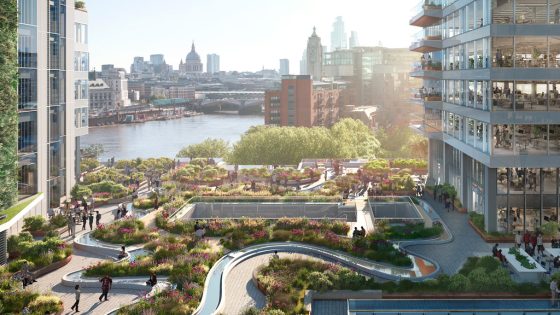The High Court has upheld the decision to approve the redevelopment of the former ITV headquarters on London’s South Bank, dismissing a legal challenge from local campaign group Save Our Southbank.
The decision paves the way for a transformation of the Mitsubishi Estate Company site, which has been vacant since 2021, into an office, cultural, and retail hub.
Multiplex was awarded the construction contract in October, replacing the original contractor Lendlease, according to information from data provider Glenigan.
However, this has not been officially confirmed by any of the parties.
The redevelopment at 60-72 Upper Ground will replace the existing structures with two new buildings: a 14-storey block facing Queen’s Walk and a 25-storey tower along Upper Ground.
The plans also feature a raised six-storey podium linking the two buildings and landscaped public spaces.
Mr. Justice Mould ruled that the redevelopment by would not harm nearby heritage assets, including St Paul’s Cathedral, Waterloo Bridge, and several conservation areas.
The judge highlighted the fact that the secretary of state approved the scheme despite concluding that the proposal “would not provide a positive contribution to the townscape of the South Bank”.
The judgement said: “It may seem surprising to some that the [secretary of state] should find that a scheme which, in his view, would not deliver an attractive development of this very prominent and sensitive site on the South Bank should nevertheless be given planning permission.
“That, however, is a matter for the [secretary of state]’s judgment as the planning decision maker in this case.
“For the reasons I have given, I have not been persuaded that any of the claimant’s grounds of legal challenge to that planning decision has been made out.”
The judgement also said that the project aligns with planning policies for the Greater London Authority’s Central Activities Zone (CAZ), which prioritize office and cultural uses over residential development.
While Save Our Southbank contended that the redevelopment should include housing, the court noted that the site’s strategic designation gives precedence to commercial and cultural functions.
Public benefits, such as improved public spaces, cultural facilities, and economic opportunities, were key to the decision.
The secretary of state concluded that any minor harm to heritage assets was “less than substantial” and outweighed by the benefits of the scheme.

